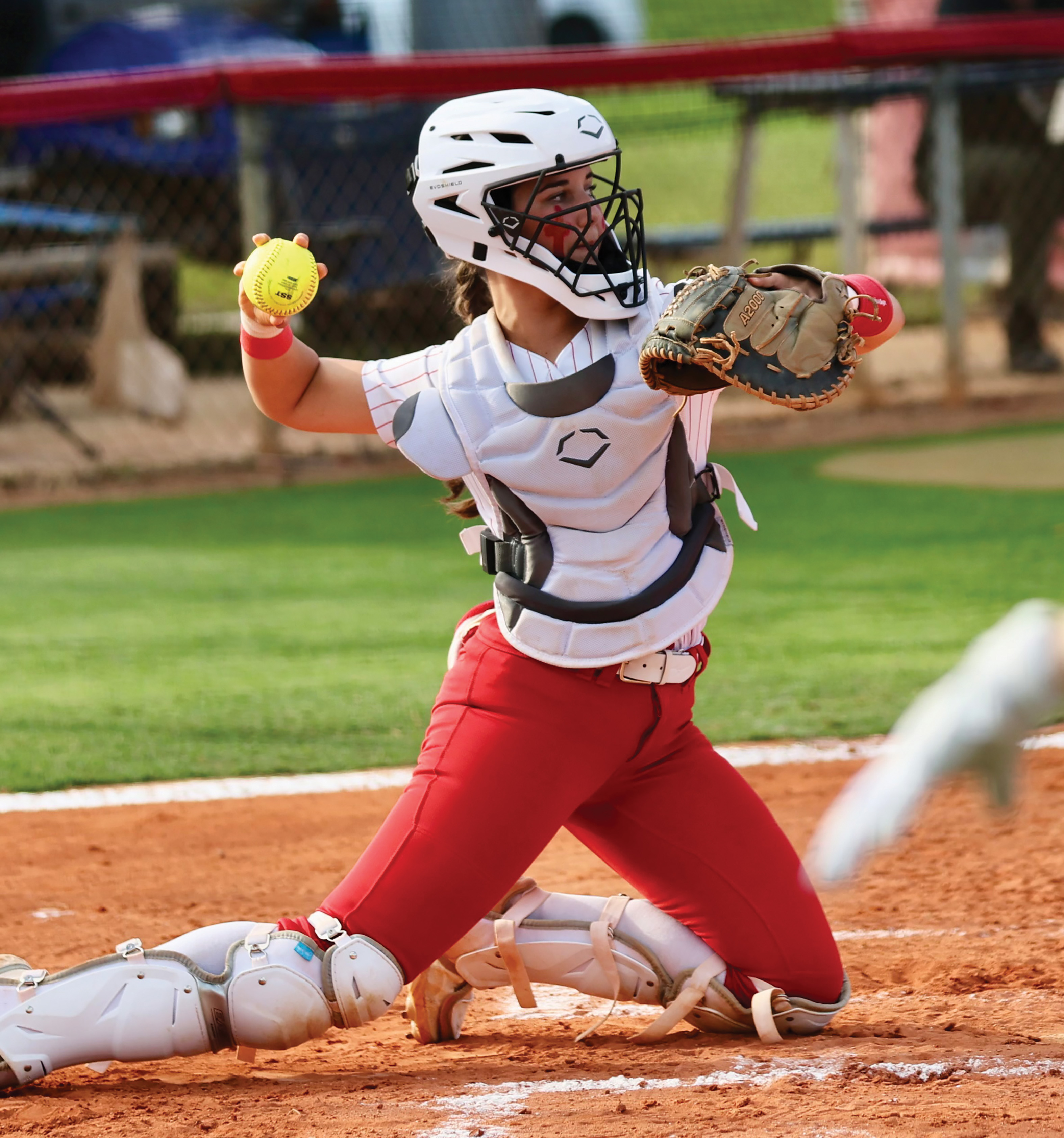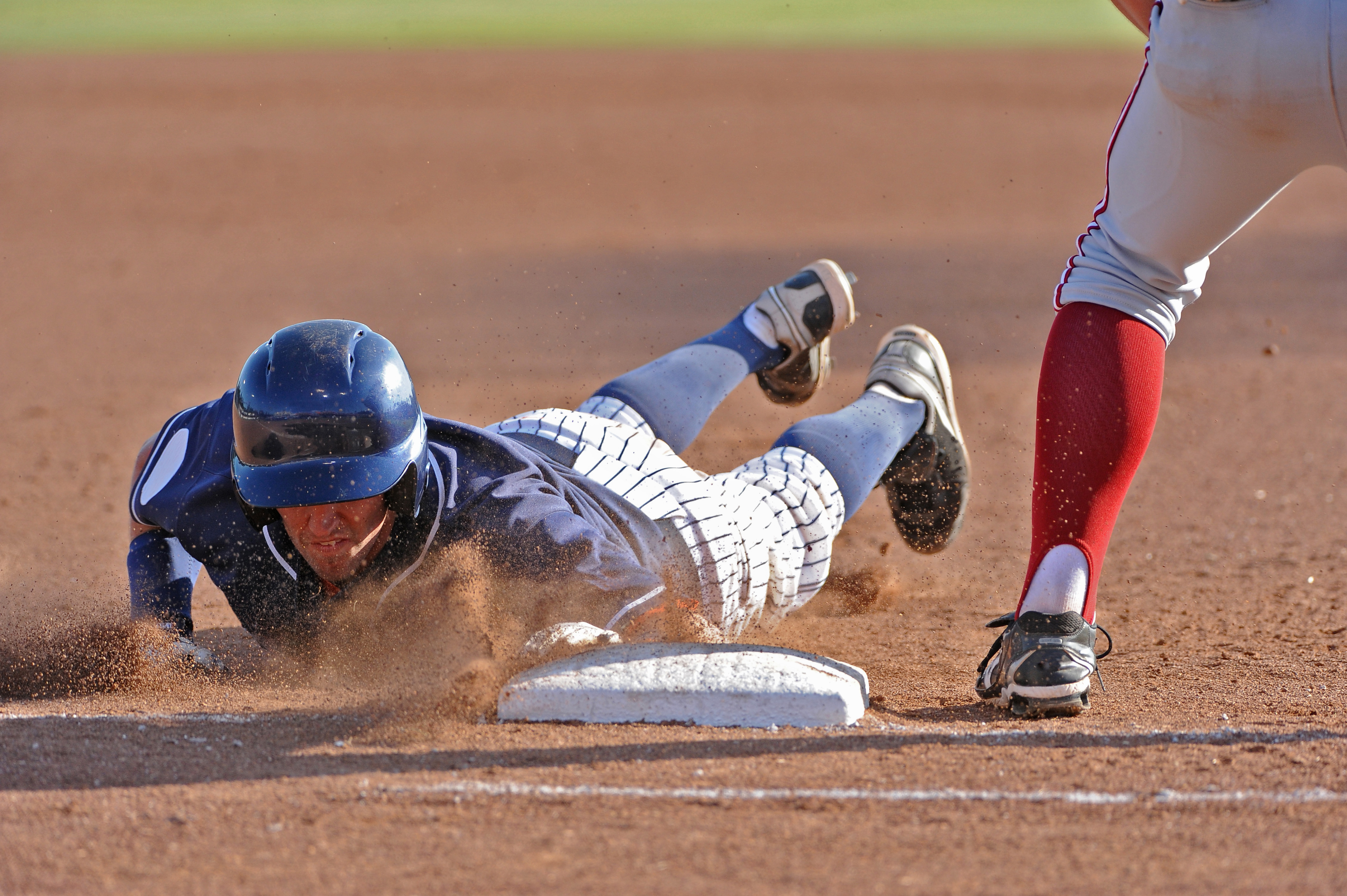
If there are any three team sports that represent the sporting spirit of summer in the United States, they are baseball, fast-pitch softball and slow-pitch softball. (Yes, slow-pitch is a distinctly different sport than fast-pitch, with radically different participants, rules and equipment.) All three start their seasons in the spring and continue well into late summer — and increasingly playing right into the fall.
Of these traditional, ball-related team sports, baseball is dominated by young males, slow-pitch softball participation continues to be a sport of choice for adult males and fast-pitch softball is in its own unique niche dominated by young females ages six-to-17 years old. Let’s take a look at each of them in the eyes of America’s team dealers.
Girls’ fast-pitch softball is trending positive with some headwinds, as interest and participation are solid. Baseball, too, has its unique challenges but remains strong. And the good news for team dealers is that spending on both is on the upswing, too, based on comments from dealers in Florida, Indiana, Delaware, New Hampshire, Michigan and Texas.
In Vero Beach, FL, baseball participation is very strong and fast-pitch participation is not.
“In this part of Florida, I am witnessing the daily decline in participation in girls’ fast-pitch softball. For the most part, it’s been reduced to a travel sport,” reports Dave Whipp, co-owner of Dave’s Sporting Goods. “Whereas, our baseball remains very popular and business is great.”
According to Whipp, the opportunities for girls to play other sports such as bowling, lacrosse and beach volleyball is causing many to think twice about playing softball.
One of the reasons why Dave’s Sporting Goods is doing well with baseball is because the store is adjacent to a five-field baseball complex. “Our store backs up to the Vero Beach Little League complex and we generate a great deal of walk-in business, especially on Saturday mornings,” says Whipp. “Players always need a belt, a pair of socks or a new set of pants because of a rip or a tear.”
The level of seriousness of today’s travel baseball player has been a big boost to Whipp’s business, which he runs alongside his wife, Becky. “So many of today’s young travel players show up with a bat bag filled with four bats, three gloves, two sets of cleats and at least two hats.”
One of Whipp’s biggest business challenges these days is keeping up with coaching changes.
“Just when you think you have the baseball business from a certain school, there’s a coaching change, I’m not notified, and the new coach starts buying product from one of his buddies,” Whipp laments. “The business model has definitely changed.”
In addition to strong business with local rec baseball leagues, school-based teams and travel teams, Dave’s Sporting Goods generates a great deal of business from the large number of baseball tournaments held each year at the nearby Jackie Robinson Complex in Vero Beach. (The complex is actually the old Dodgertown, the long-time spring training home of the Los Angeles Dodgers, and is about two miles from Dave’s Sporting Goods.)
Another of Whipp’s big-picture observations is how product buying patterns have changed for local youth leagues. “Our rec baseball leagues are spending more money by ordering 3D embroidered hats and sublimated jerseys,” he points out. “Times have certainly changed.”
Interesting note: One baseball product that gaining popularity is the sliding mitt. “When players are getting to first base, they are now taking off their batting gloves and putting on these mitt-sized sliding mitts,” says Whipp.
Meanwhile, in Clarksville, IN, Kratz Sporting Goods is selling fast-pitch softball and baseball year-round. According to owner Allen Krebbs, business is consistent with local rec leagues, travel teams, middle schools and high schools and some college programs in southern and central Indiana. The college business is usually restricted to decorating uniforms.
The one part of his baseball and softball business that has had the greatest statistical surge in recent years is with travel teams. “Our travel business is huge,” says Krebbs.
The success Kratz has in selling baseball and softball is twofold — having all the necessary equipment along with an in-depth knowledge of the sport.
“Baseball and fast-pitch softball have become year-round categories for us,” says Krebbs, adding, however, that “fast-pitch softball has become a niche sport. You have to know it to sell it. It’s important to know the sport and I think we do.”
According to Krebbs, the high school baseball and softball teams are buying new uniforms once every three to five years, whereas travel teams are purchasing new uniforms every year. And while he and his associates are selling softballs, baseballs, uniforms, belts, socks, bat bags, batting helmets, catcher’s gear, bases, scorebooks and field paint, the number of bats, cleats and fielding gloves/mitts is on the decline.
“More and more of players are buying bats, cleats and fielding gloves from websites on the Internet,” he explains.

Baseball Is Strong in Delaware
In Wilmington, DE, the combined baseball-softball category for Al’s Sporting Goods is strong and getting stronger, especially when the Philadelphia Phillies are winning.
“After you break it down, our business is roughly 70-30 in favor of baseball,” reports owner Bob Hart. “And, when the Phillies are winning, our licensed product sales are very good.” His business has two components – a team division and a retail division.
“We sell to both teams and individuals who play baseball and softball,” says Hart. “Our team sales are to local rec leagues, travel teams and school teams and we sell product to 20 different local youth baseball and softball leagues along with very few colleges.”
Local rec baseball and softball leagues are buying socks, a hat and a T-shirt from Al’s, and the T-shirt is either a MLB-licensed shirt with the logo of a certain team or a sublimated jersey. If the shirt is an MLB version, then Al’s will screenprint the name of the sponsor on the back along with a number.
When it comes to cleats, gloves and bats for baseball and softball, the majority of sales are to individuals walking into the retail store.
Overall, Al’s does its best to be a one-stop shopping experience for both teams, leagues, parents, fans and individual players.
Up in West Lebanon, NH, Stateline Sports has a strong business selling both baseball and softball through its team division and retail store.
“In our team business, leagues, schools and teams are buying uniforms, baseballs, softballs, batting helmets, socks and some less expensive team bats for baseball and fast-pitch softball,” reports team buyer Dan Proulx.
And in the retail business, players are purchasing fielding gloves, batting gloves, batting helmets and expensive bats, according to Bud Hill, a baseball/softball sales specialist for Stateline Sports.
While Stateline Sports sells slow-pitch softball gear, equipment and accessories, the business is not as brisk as it used to be. “Our slow-pitch business is down to one local co-ed league in our area,” says Hill.
Interestingly, one factor that limits more sales of baseball and fast-pitch softball is the existence of ice hockey season. “When it’s hockey season, everybody plays hockey,” explains Proulx.
Steady Business in Michigan
In Battle Creek, MI, spending is strong for baseball and fast-pitch softball throughout the year, but especially in the months leading up to spring and summer.
“Uniform sales are steady,” reports Cam Bortell, a sales associate at Jack Pearl’s Sports Center. The primary baseball and softball clients start with youth baseball leagues and conclude with a handful of local college baseball teams.
“While we do sell product to some travel teams, we have more business with high school baseball teams,” says Bortell.
When it comes to sales of actual baseballs, Rawlings may be the official ball of high school baseball in Michigan, but Jack Pearl’s also sells baseballs from Wilson, Champro and Diamond.
While cleats, bats, and gloves are product staples of the sports, Jack Pearl’s does not sell cleats, its bat business is minimal and it only generates business for fielding gloves when teams place an order.
“For the most part, kids are on their own when it comes to bats and gloves,” he says.
Still, according to Bortell, Jack Pearl’s does sell a variety of items that pertain to both baseball and fast-pitch or either one on its own such as bases, softballs, pitching screens, hitting tees, batting gloves, socks, belts, hats for boys, visors for girls, protective masks for girls and practice apparel.
Down in Fort Worth, TX, Carey’s Sporting Goods remains a school-oriented team dealer for both sports. “About 98 percent of our business is with schools,” explains owner Dan Carey. “We know what we do best. We have great relationships with our area schools and coaches.”
The popularity of baseball and fast-pitch softball in Texas is reflected in sales of those two categories. “We sell baseball and fast-pitch softball across the board,” says Carey. “We sell uniforms, practice apparel, socks, belts, baseballs, softballs, batting gloves, catcher’s equipment and all types of field equipment.”
The high level of interest in fast-pitch softball in Texas was reflected in the fact that the two finalists in this year’s Women’s College World Series in Oklahoma City were a pair of teams from the Lone Star State — the University of Texas and Texas Tech University.
.svg)